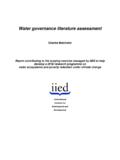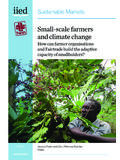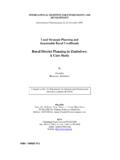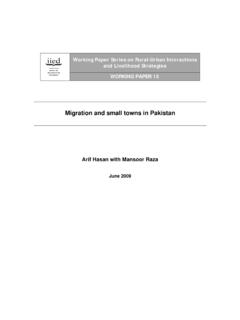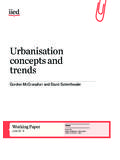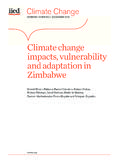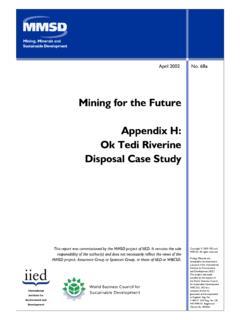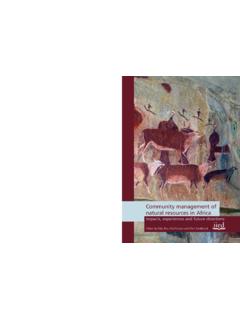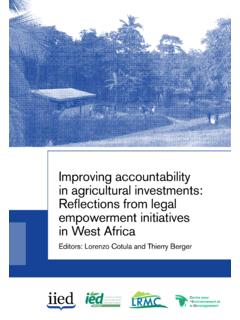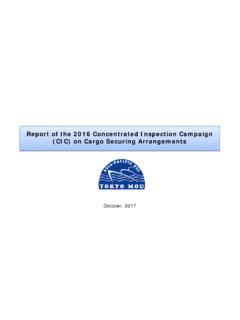Transcription of Securing social justice in green economies
1 Securing social justice in green economiesA review and ten considerations for policymakersKate Raworth, Sarah Wykes and Steve BassIssue PaperOctober 2014 green economyKeywords: green economy, green economy policy, green growth, social justiceAbout the authorsSteve Bass is head of the Sustainable Markets Group at the International Institute for Environment and Development (IIED). Leading IIED s work on shaping sustainable markets, his research focuses on governance and markets that link poverty reduction and environmental management and international policy processes for sustainable development. Steve s current work includes coordinating IIED s initiative to refresh approaches to research on sustainable development, facilitating learning groups and reviews in low-income countries to build capacity for MDG7 (environmental sustainability). Email: Web: Raworth is visiting fellow in economics at IIED.
2 She is also senior visiting research associate at the Environmental Change Institute of Oxford University. Her research focuses on rewriting economics in the face of 21st Century social and ecological challenges. She blogs on this theme at and tweets Email: Wykes leads CAFOD s policy work on climate change and energy, focusing on promoting access to sustainable, affordable, reliable and safe energy for people living in poverty and vulnerable groups, and shifting away from a fossil-fuel based energy system. Her work includes developing energy delivery models for poor and vulnerable groups (with IIED); analysing the UK s investment in energy access in developing countries; analysing the poverty reduction impacts of large-scale fossil-fuel investments in developing countries; supporting civil society participation in the Sustainable Energy for All initiative; and advocating for an energy Sustainable Development Goal.
3 Email: Web: discussion paper was commissioned jointly by CAFOD and IIED. It was authored principally by Kate Raworth, visiting fellow in economics at IIED, with contributions from Sarah Wykes, lead analyst on climate and energy at CAFOD, and Steve Bass, head of the Sustainable Markets Group at IIED. The authors would like to thank Christina Chang, Graham Gordon, Sarah Montgomery, Oliver Greenfield and Fulai Sheng and the participants at the February 2014 Wilton Park Conference on Real green economies for their insightful comments on earlier drafts. The discussion paper was funded by CAFOD and by UK aid from the UK government although the views expressed do not necessarily reflect the views of CAFOD or the UK by IIED s Sustainable Markets GroupThe Sustainable Markets Group drives IIED s efforts to ensure that markets contribute to positive social , environmental and economic outcomes. The group brings together IIED s work on market governance, business models, market failure, consumption, investment and the economics of climate organisationCAFOD is the official Catholic aid agency for England and Wales.
4 CAFOD works with partners across the world, wherever the need is greatest, to bring hope, compassion and solidarity to poor communities, standing side by side with them to end poverty and injustice. CAFOD works with people of all faiths and none. CAFOD works with more than 500 partners overseas, and with partners in the UK all working to reduce poverty. Inspired by Scripture and Catholic social Teaching, and the experiences and hopes of people living in poverty, CAFOD works for a safe, sustainable and peaceful by IIED, October Raworth, Sarah Wykes and Steve Bass. 2014. Securing social justice in green economies : A review and ten considerations for policymakers. IIED Issue Paper. IIED, code: 16578 IIEDISBN : 978-1-78431- 017-2 Printed on recycled paper with vegetable-based caption: Leparua Greenhouse - solar powered irrigation & agricultural training supplied by CARITAS Isiolo for a community greenhouse.
5 Sinteyo Legei (pictured) is part of the women s cooperative group growing tomatoes. Photo credit: CAFOD/Annie BungerothInternational Institute for Environment and Development 80-86 Gray s Inn Road, London WC1X 8NH, UK Tel: +44 (0)20 3463 7399 Fax: +44 (0)20 3514 9055 email: @iied more publications at green economy and green growth policymaking is moving to the centre of many national development strategies. green policies should enable countries to manage their natural resources more sustainably and efficiently, diversify into new green markets and secure the environmental foundations of development. But do they automatically increase social justice ? green and just development requires two key ingredients: integrated policymaking and a holistic outcome framework combining environmental, social and economic objectives. Focusing on developing countries, this paper draws on learning from national case studies and international analyses.
6 It concludes with ten critical considerations for shaping green and just national strategies and policies. 3 ISSUE PAPERC ontentsExecutive summary 4 The rise of greening 4 From compensation to transformation 4 Ten considerations for policymakers aiming at green and just development 51 Introduction: objectives and approach Research questions Research sources A brief outline of the paper 82 The drive for sustainable development New momentum Poverty reduction and environmental sustainability: in tandem or in tension? 113 Surveying the landscape of green policymaking National sustainable development strategies green economy initiatives green growth initiatives 154 Surveying the literature of green policymaking 175 Key sectors and tools for green policymaking 206 Analysing the social implications of green policymaking 247 Raising social ambitions: from compensation to green and just transformation 288 Ten considerations for green and just policymaking 32 References 40 Annex 1.
7 Case studies of green and just policymaking 43 Acronyms 47securing social justice in green economies | A review And ten considerAtions for policymAkers4 green economy and green growth policymaking is moving to the centre of many national development strategies. green policies should enable countries to manage their natural resources more sustainably and efficiently, diversify into new green markets and secure the environmental foundations of development. But do they automatically increase social justice ? Diverse country experiences of green policymaking demonstrate different levels of attention to social objectives ranging from no social analysis or provision at all, to those that achieve significant social and environmental co-benefits and, finally, those realising transformational outcomes.
8 In this discussion paper, we draw on a range of national case studies and international analyses, focusing on developing countries. Two key ingredients are needed for green and just development: a holistic outcome framework combining environmental, social and economic objectives and integrated policymaking wiring together separate policymaking strands. We conclude by proposing ten critical considerations for shaping national strategies and policies that are both green and just. The rise of greening Many low- and middle-income countries are drawing up national green growth or green economy strategies, in collaboration with international agencies and donors. Using the tools of market incentives, regulation, public investment and resilience planning, most aim to promote economic growth while reducing greenhouse gas emissions and increasing the efficiency of natural resource use. They typically focus on tackling energy, transport and infrastructure; some also address agriculture, forestry, resource-intensive manufacturing and recycling.
9 social equity matters to many developing countries in their green policymaking and yet some prominent international green initiatives sidestep social concerns. Greening key sectors is, instead, presumed to bring long-term benefits to people living in poverty, largely by stimulating economic growth, supporting diversification, and creating jobs in environmental policies, however, can entail complex social impacts and when these are overlooked, the costs fall on poor and marginal social groups. Rather than reap expected benefits, women and men living in poverty may face rising energy prices, restricted access to forest resources and the collapse of the dirty sectors in which they were employed while anticipated job opportunities and national investments in green infrastructure barely reach them. Addressing the social implications of green policymaking clearly matters, in both national policymaking and international initiatives.
10 The forthcoming UN Sustainable Development Goals (SDGs) create a valuable opportunity to develop more integrated, holistic and participatory approaches and to support nationally and locally tailored development pathways that are both green and just. From compensation to transformation Examining current experiences across countries, we have identified four approaches to addressing social concerns in green policymaking:Level 1: No social analysis or action. Some national greening policies take no account of social impacts and so are likely to exacerbate existing inequalities and negatively affect low-income communities and marginalised groups, including women and ethnic 2: Safeguarding policies. Many countries realise that safeguards (such as providing cash transfers and social protection) are often critical to poor and vulnerable groups during green transitions. But such safeguards often underestimate the social and cultural costs of transition and, alone, are insufficient for long-term poverty 3: Pursuing co-benefits.
